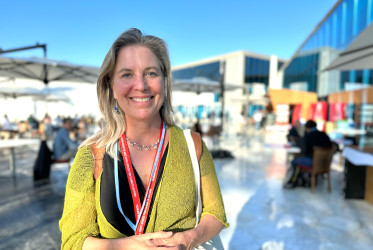Displaying 21 - 40 of 59
HIV and AIDS Civil Society Networks and the Faith Sector
Lessons Learnt from Strategic Engagement in India, Dominican Republic, Indonesia, and Jamaica
31 January 2023
Neddy Astudillo at COP27: “We still have the power to protect life”
18 November 2022
Christian Brooks: “Faith and climate really go hand-in-hand”
14 November 2022
Ukraine: Responding to humanitarian need
08 September 2022
Called to Transformation - Ecumenical Diakonia
09 June 2022


















